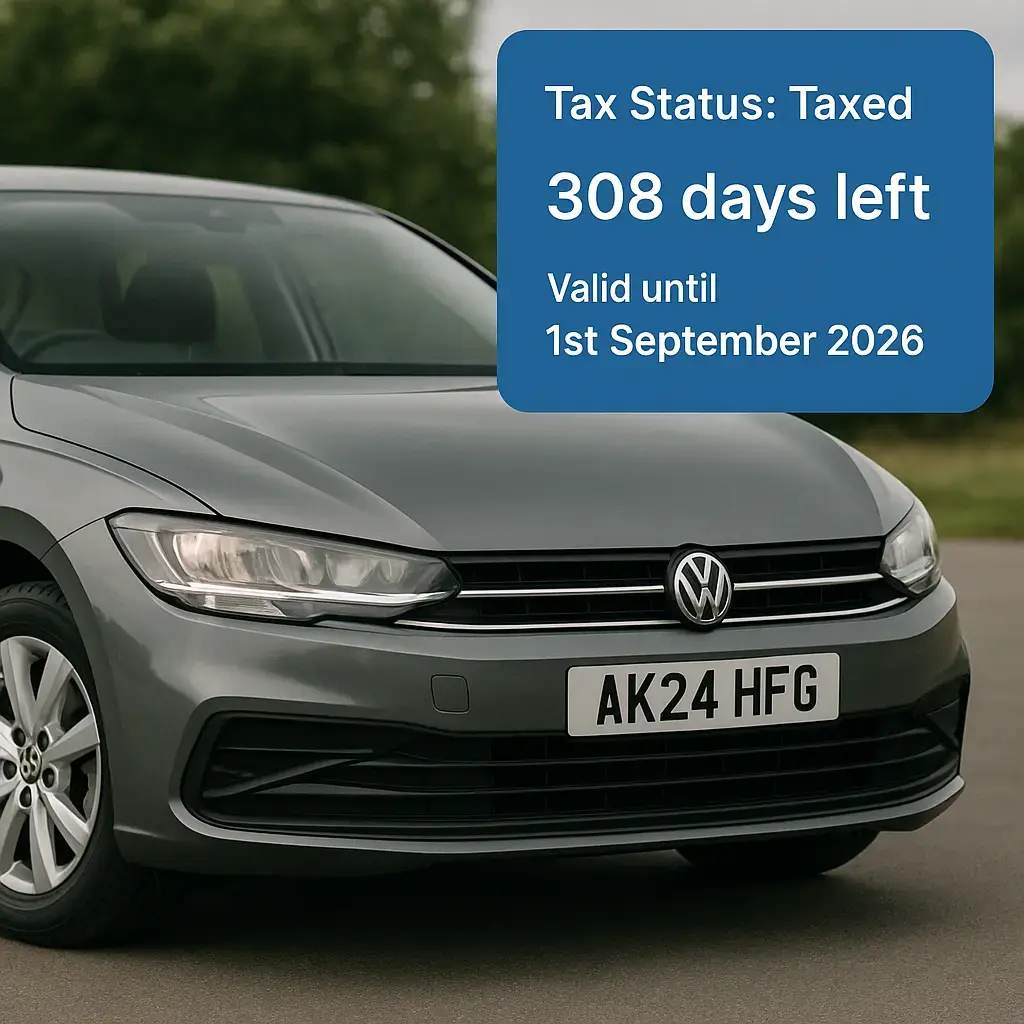
Road Tax Explained: What You Need to Know
Road tax isn’t random — and it’s not just another government charge. Whether you drive a 1.0L hatchback or a £60,000 SUV, how much you pay (or don’t) depends on a system designed to reward efficiency, reduce pollution, and keep roads funded.
Here’s how road tax actually works — and why it could be costing you more (or less) than you think.
Check if your vehicle is taxed, when the tax expires and how much you'll pay.
💡 What Is Road Tax — and Why Do We Pay It?
Road tax — officially known as Vehicle Excise Duty (VED) — is a tax you pay to legally drive or keep a vehicle on UK roads.
The money helps fund:
Maintenance of public roads
Road safety and signage
Transport infrastructure
Environmental policy enforcement
Even if you don’t drive often, if your car isn’t registered as off the road (SORN), you’re legally required to pay it.
🧮 How Road Tax Is Calculated
🚘 1. For Cars Registered Before March 2001
You’re taxed based on engine size:
Under 1549cc → lower flat rate
Over 1549cc → higher flat rate (around £325)
🌍 2. For Cars Registered Between March 2001 and April 2017
You’re taxed based on CO₂ emissions:
Lower CO₂ = lower tax (as low as £0–£30/year)
Higher CO₂ = higher tax (up to £600+/year)
💷 3. For Cars Registered After April 2017
It’s a mix of:
First year tax (based on CO₂ emissions) — can range from £10 to £2,365
Standard annual rate after that — usually £180–£195
+£425 supplement if your car cost over £40,000 (for 5 years)
⚡️ What About Electric Vehicles?
Until April 2025, electric vehicles were tax-exempt.
But from April 2025, EV drivers will pay:
Standard flat rate of £195/year
Plus the £425 supplement if the car cost over £40,000
The shift reflects government plans to balance tax income as more drivers go electric.
🏆 Why Banding Exists — And Why It Matters
Banding helps:
Encourage low-emission, efficient car use
Discourage excessive pollution
Ensure those with pricier vehicles contribute more
So, someone driving a £1,500 petrol car from 2002 might be paying more tax than a 2020 hybrid — even if it seems less “luxury.”
This tax checker reveals your band and tax cost — helping you avoid any nasty surprises.
Common Questions
Why is my tax different from someone else’s? It depends on when your vehicle was registered, its emissions, engine size, and list price.
Can I reduce my road tax? Only by switching to a more efficient or lower-band vehicle. Tax bands are set per car, not driver.
Do older cars pay more tax? In many cases, yes — especially if they’re over 1549cc or high in CO₂ emissions.
Are there vehicles that pay no tax? Yes — like historic vehicles (40+ years old), disability-exempt cars, and certain agricultural or specialised vehicles.
Is it worth checking before buying? Absolutely. That £7,000 used car might come with a £600/year road tax bill. Resolvo shows your tax band instantly, so you can plan ahead.
🔍 Final Thoughts
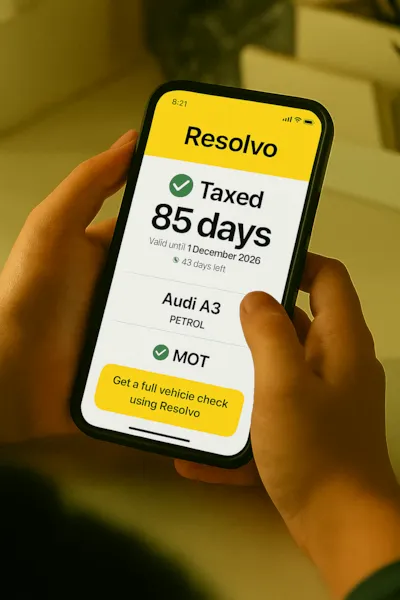
Road Tax Resolvo
Road tax isn’t just red tape — it’s a system designed to reward cleaner cars, raise funds for public roads, and create fairness in who pays what.
Before you buy, sell, drive, or renew, check your tax band with this road tax checker. It could save you money and help you make smarter choices down the road.
Related Posts
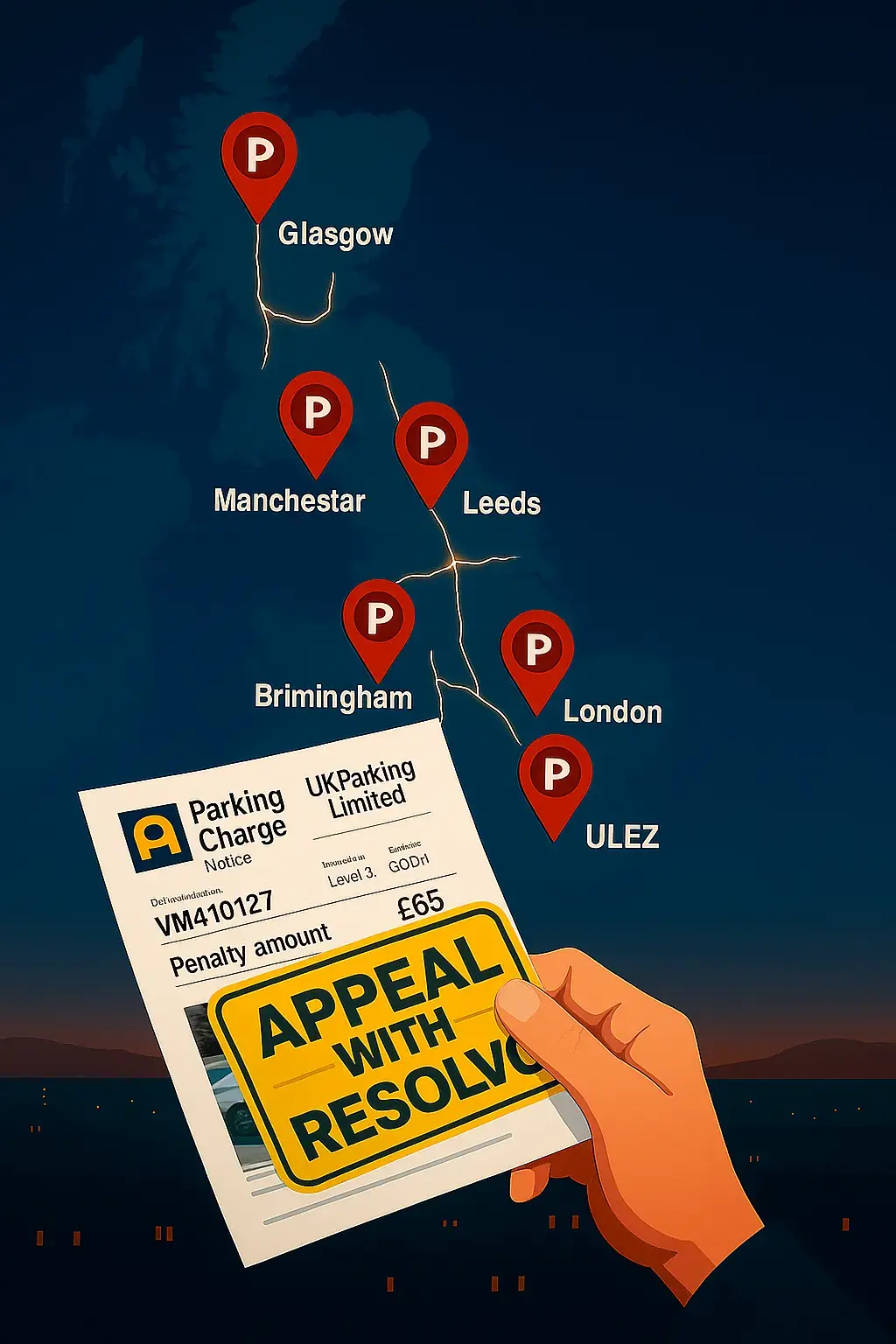
6 Parking Fines That Would Cost You £630: How to Fight and Beat Them
22 June 2025
Got a parking ticket? Learn how to appeal Dart Charge, ULEZ, parking, or bus lane fines with Resolvo in under 2 minutes for free.
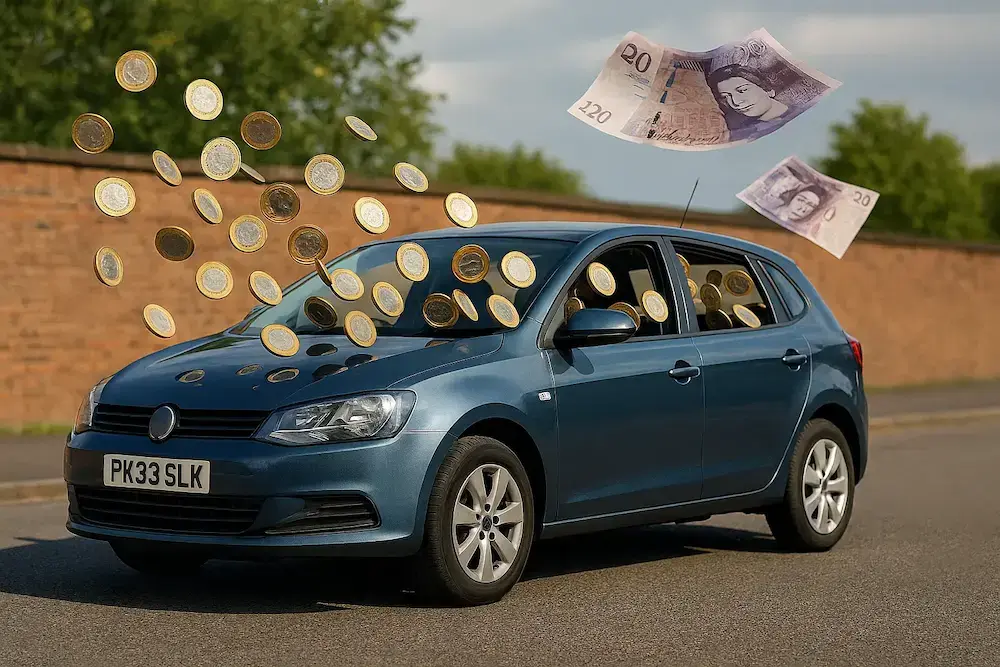
The Cost of Owning a Car in 2025: What Drivers Forget
27 October 2025
Thinking of buying or budgeting for a car in 2025? Discover the true cost of car ownership — from insurance and MOTs to hidden charges and new tax rules. Get smart with Resolvo’s free car tools
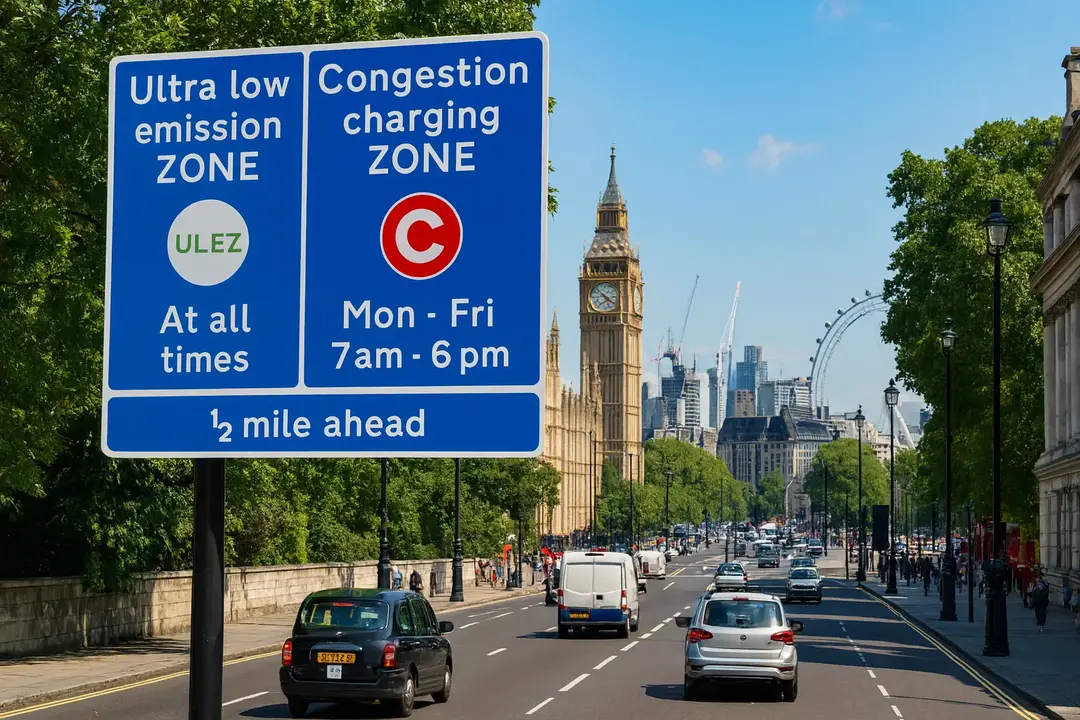
Got a Congestion Charge Ticket? Here's How to Fight and Beat It
6 October 2025
Got a ticket from a parking ticket from TFL? Learn how to appeal it in minutes, what your rights are, and how Resolvo helps you fight back — for free.

92% of Q‑Park Reviews Are 1‑Star – How to Fight Your Parking Fine
26 October 2025
Thousands of drivers rate their experience with Q Parks as 1-star. We looked at their reviews to understand what’s happening — and show how you can beat your fine with Resolvo for free.
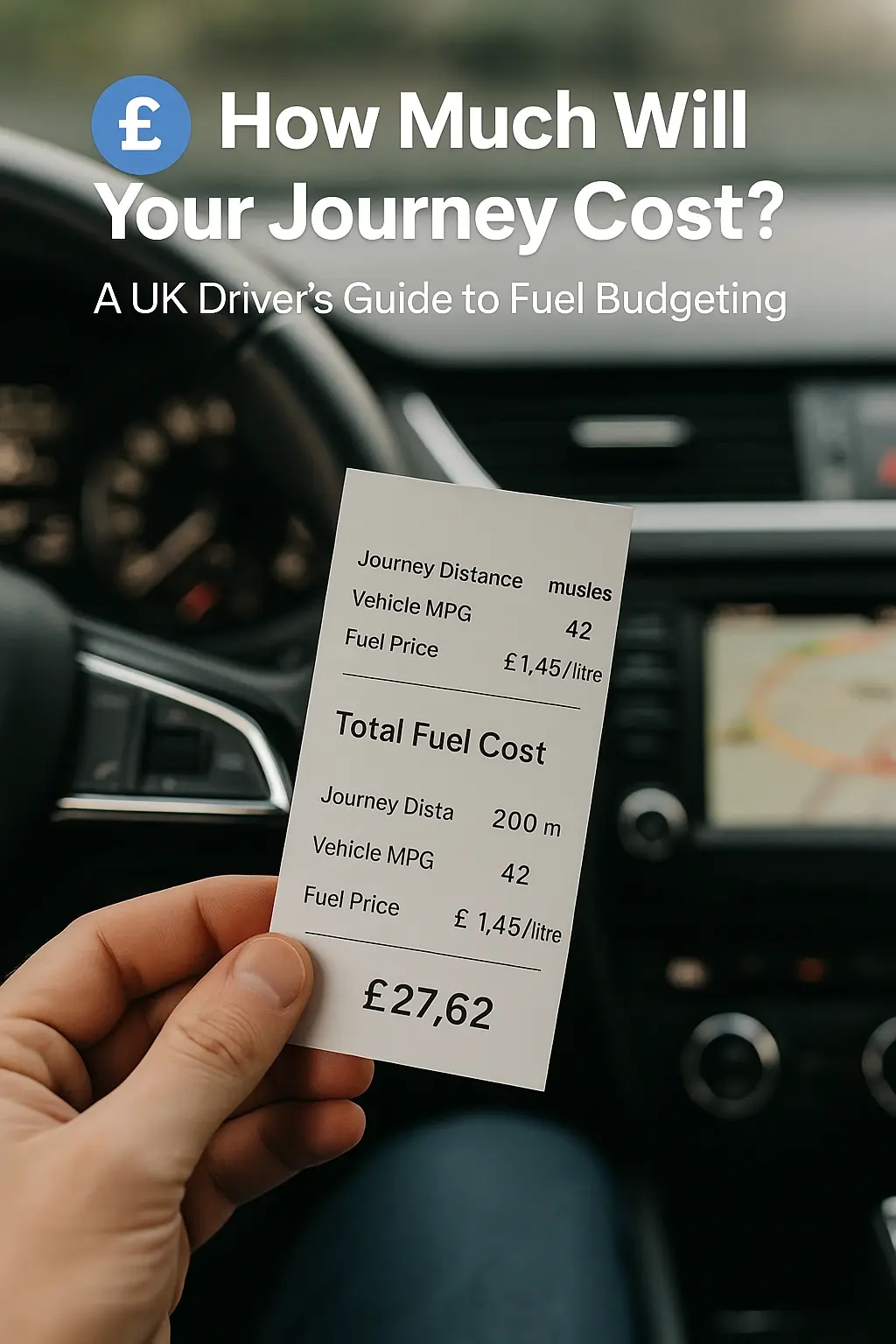
Find Out How Much Your Journey Will Cost?
27 November 2025
Calculate your UK journey costs accurately — fuel, parking, tolls & hidden expenses. Free calculator + real examples. Is driving cheaper than the train?

Planning to Get a Car Subscription? What You Need to Know
9 November 2025
Learn how UK car subscriptions work, what’s included in the monthly fee, key questions to ask, and how they compare to traditional buying or leasing options.